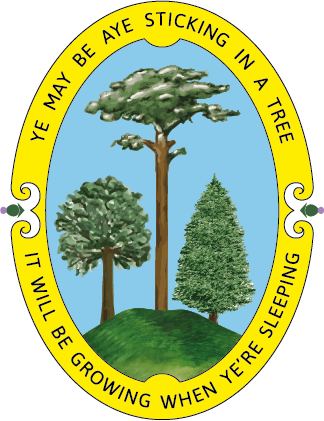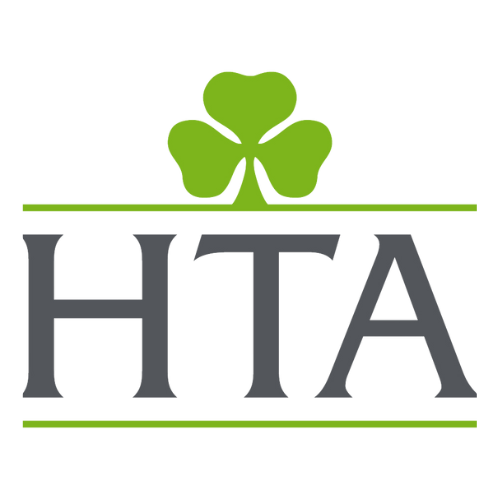Climate change's impact on UK biosecurity
With the UK being home to over 3 billion trees covering 13% of the country's land area (Woodland.co.uk), maintaining effective biosecurity practices is essential to protecting our beautiful and diverse woodlands from traditional diseases such as Ash Dieback and Phytophthora Ramorum.
New biosecurity threats
However, the risk of new pests and diseases affecting UK trees is rising due to climate change. Research published in Forestry: An International Journal of Forest Research has warned that UK forests will face catastrophic collapse in the next 50 years if action is not taken!
Trees will be more vulnerable to pests and diseases due to milder winters, warmer temperatures, changes in seasonal timing, phenology, and other climatic influences such as wind and drought.
Certain pests and illnesses that are not yet present in the UK are moving further north due to the warmer temperatures, which are presenting new threats to our woodland areas. Some pests and diseases can endure the cold better thanks to milder winters. Alongside this, certain insect pests are able to reproduce more frequently each year due to warmer temperatures, which prolongs their active season and expands their geographic range.
Alongside insects, mammals will favour warmer climates with increased populations. An example is the grey squirrel, which causes damage to trees, especially oak in ancient woodland.
As a collective, all parties involved in forestry and horticulture must monitor concerns around biosecurity and proactively work together to mitigate threats, preserve habitat, and ensure the sustainability of our woodland for future generations.
Alba's role in maintaining UK biosecurity
Alba Trees takes biosecurity and the need to safeguard the wider natural environment very seriously. We aim to produce the highest quality trees for the UK forestry market and for woodland creation. Our trees never leave the UK during any part of their growing cycle, and we never put them in contact with any trees from outside the UK. This eliminates the risk of cross-contamination from imported plants and overseas diseases. We employ stringent biosecurity measures to ensure that our trees are free from harmful pathogens and pests before they are distributed and then planted.
Alba holds 'Plant Healthy' certification, and we carry out regular phytosanitary checks plus inspections for notifiable diseases. A robust inspection regime is a key element of healthy plant production, and to date, no reportable issues have ever been identified in our nursery. Additionally, we are in constant collaboration with government agencies, research institutions, and forestry professionals to stay up-to-date on emerging threats and develop effective control strategies. With decades of in-house knowledge and expertise, we are able to identify early warning signs of potential outbreaks, thereby allowing for timely interventions to prevent their spread.
Our innovative practices
All Alba trees are grown in our nurseries in East Lothian and supplied directly to customers. We are committed to never importing trees. Our dedicated, knowledgeable nursery team is professionally trained in identifying pests and diseases, both pre-emptively and proactively. As an organisation, Alba is fully committed to minimising the use of chemicals and investigating biological and environmental controls where available. This includes implementing strict sanitation protocols, conducting regular inspections, and sourcing seeds from certified suppliers.
Biosecurity prevention
We carry out monthly inspections of trees within our local area to identify any pathogens or hosts. The data is then collected and stockpiled to safeguard the nursery, with trees or plants being felled when necessary to prevent the spread of disease. We also heat treat all the pallets we use in our operations and have rigorously trained staff to inspect pallets for evidence of pests/boring. The results of these inspections are recorded and stored in order to identify patterns and contributes to our overall prevention strategy.
Nursery layout
There are strict biosecurity controls in place across our nursery, including our purpose-built biosecurity wash-down system to prevent the ingress of disease, designed to ensure no contamination is brought onto our sites by vehicles or visitors. The design of our nursery is also centred around biosecurity, as our transport routes ensure no cars enter production areas. Any transport vehicles that need to enter the production zones will pass through our water-down system first, massively reducing the risk of outside diseases entering the nursery. All our water is extracted from a bore hole as well as our on-site tanks as a reserve supply, allowing us to fully control the quality of the water we use in our operations. Our extensive drainage system is designed to remove all wastewater from the site and disperse it in a manner that enforces biosecurity. The tunnel layout we have developed focuses on separate tunnels allowing us to easily isolate and quarantine plants in the event of an outbreak. We also structure our outdoor growing areas in a similar way, with four separate areas across our main site. Overall, our nursery’s entire layout is designed to mitigate pests and disease, giving us complete control over the wellbeing of our trees even in the case of an outbreak due to segregated storage strategies.
Cleaning measures
All our staff regularly clean their clothing and equipment to prevent the spread of pathogens. Our grading team also always ensure any containers have been regularly cleaned to safeguard our stock. Every spring the team does a full audit and clean of our drainage system in order to remove excesses of mud which can harbour disease.
Our team's biosecurity commitment
All nursery staff are trained in the identification of pest and disease. When our staff are visiting other locations, they will adhere to local biosecurity rules and follow our own procedures for visitors when visiting high risk sites such as nurseries and at-risk woodlands.
Our experienced Nursery Manager runs the plant husbandry schedule, which encompasses growing to physical specification, preventing nutrient deficiencies and treating the plants with anti-pathogenic chemicals and treatments other than chemicals preventatively and curatively. We also have a dedicated Plant Healthy Manager on site who has the specific responsibility of monitoring by schedule all crops for signs of pest and disease.
Looking forward
While Alba is leading the way in terms of biosecurity, it is an issue which affects the entire industry and must be constantly monitored. As outlined in the International Journal of Forest Research, action must be taken in order to maintain our healthy woodlands.
Want to improve biodiversity in your area? Check out our range of pure cell grown trees.










